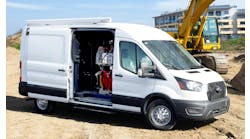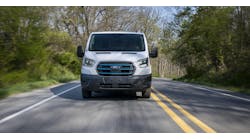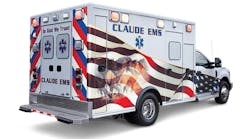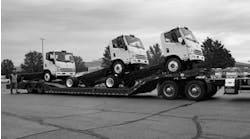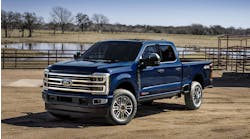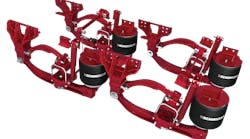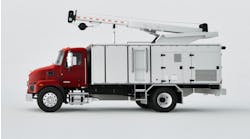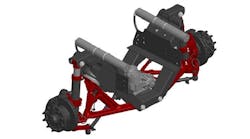Reyco Granning recently introduced the newest ComfortMaster family – the next generation of its IFS suspensions.
The first two platform variants, based on 17,000- and 20,000-pound GAWR systems, are expected to be available for shipment Nov. 26, the company said, with additional capacities in development.
Reyco’s new ComfortMaster family of independent front suspensions will replace the IFS17S3, IFS18S3 and IFS20S3 product lines. After a brief overlap, these existing Transit Bus and Motorhome IFS products will be phased out to make way for production of the ComfortMaster series.
“Reyco Granning has motored past its largest global rivals to develop the future of independent front suspension,” said Arnie Dunai, vice president of sales and marketing. “Some of us remember driving cars and trucks with solid front axles. With independent front suspensions so superior, why would we want to go backward?
“This advanced technology takes comfort, performance and safety to another level for our customers and yours.”
The system comes as a complete module without any loose parts.
It includes sub-frame/cradle, power steering gear, steering linkage and all components to make it a unitized bolt-in system.
ComfortMaster features an industry-first, nitrogen-charged and sealed McPherson-style strut architecture. The nitrogen strut integrates functions of the spring, shock absorber, king-pin and upper control arm into one component, making the unique construction light weight and efficient.
“The tidy packaging of the strut affords the highest possible wheel-cut angle allowed by today’s tire manufacturers,” said John Stuart, Reyco’s president.
Reyco said it tested the ComfortMaster suspensions against its legacy products and leading competitors, with subjective and instrumented tests showing “a best-in-class ride and handling performance,” including a 29-percent improvement in lane change lateral acceleration, a key handling metric.
“With some iterative tuning, we were able to achieve the Holy Grail, improving handling without compromising ride,” said Raoul Steenekamp, vice president of engineering.
